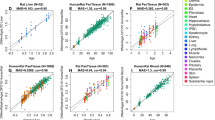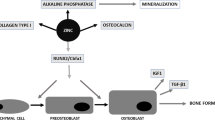Abstract
Zinc plays important roles in numerous cellular activities and physiological functions. Intracellular zinc levels are strictly maintained by zinc homeostatic mechanisms. Zinc concentrations in the prostate are the highest of all soft tissues and could be important for prostate health. However, the mechanisms by which the prostate maintains high zinc levels are still unclear. In addition, the response of the prostate to alterations in dietary zinc is unknown. The current study explored cellular zinc levels and zinc transporter expression profiles in the lobes of the prostate during dietary marginal zinc depletion. Rats were given either zinc-adequate (ZA, 30 mg Zn/kg) or marginal zinc-deficient (MZD, 5 mg Zn/kg) diet for 9 weeks. In addition, a subgroup of the MZD rats was supplemented with phytase (1,500 unit/kg diet) to improve zinc bioavailability. We found that both zinc concentrations and ZnT2 expression in the prostate dorsolateral lobes were substantially higher than in the ventral lobes (P < 0.05). Marginal zinc depletion significantly decreased ZnT2 expression in the dorsolateral lobes (P < 0.05), and phytase supplementation had a trend to increase ZnT2 expression. In addition, of all measured zinc transporters, only ZnT2 mRNA abundance was significantly correlated to the zinc concentrations in the dorsolateral lobe. No correlations were found between zinc transporter expression and zinc concentrations in the ventral lobes. These results indicate that ZnT2 may play a significant role in the maintenance of zinc homeostasis in the prostate.



Similar content being viewed by others
References
Beck FW, Prasad AS, Butler CE, Sakr WA, Kucuk O, Sarkar FH (2004) Differential expression of hZnT-4 in human prostate tissues. The Prostate 58:374–381
Bruno RS, Song Y, Leonard SW, Mustacich DJ, Taylor AW, Traber MG, Ho E (2007) Dietary zinc restriction in rats alters antioxidant status and increases plasma F2 isoprostanes. J Nutr Biochem 18:509–518
Costello LC, Franklin RB (1998) Novel role of zinc in the regulation of prostate citrate metabolism and its implications in prostate cancer. The Prostate 35:285–296
Costello LC, Franklin RB (2006) The clinical relevance of the metabolism of prostate cancer; zinc and tumor suppression: connecting the dots. Mol Cancer 5:17
Costello LC, Liu Y, Franklin RB, Kennedy MC (1997) Zinc inhibition of mitochondrial aconitase and its importance in citrate metabolism of prostate epithelial cells. J Biol Chem 272:28875–28881
Costello LC, Liu Y, Zou J, Franklin RB (1999) Evidence for a zinc uptake transporter in human prostate cancer cells which is regulated by prolactin and testosterone. J Biol Chem 274:17499–17504
Costello LC, Guan Z, Kukoyi B, Feng P, Franklin RB (2004) Terminal oxidation and the effects of zinc in prostate versus liver mitochondria. Mitochondrion 4:331–338
Devirgiliis C, Zalewski PD, Perozzi G, Murgia C (2007) Zinc fluxes and zinc transporter genes in chronic diseases. Mutat Res 622:84–93
Franklin RB, Feng P, Milon B, Desouki MM, Singh KK, Kajdacsy-Balla A, Bagasra O, Costello LC (2005) hZIP1 zinc uptake transporter down regulation and zinc depletion in prostate cancer. Mol Cancer 4:32
Gyorkey F, Min KW, Huff JA, Gyorkey P (1967) Zinc and magnesium in human prostate gland: normal, hyperplastic, and neoplastic. Cancer Res 27:1348–1353
Ho E (2004) Zinc deficiency, DNA damage and cancer risk. J Nutr Biochem 15:572–578
Huang L, Kirschke CP, Zhang Y (2006) Decreased intracellular zinc in human tumorigenic prostate epithelial cells: a possible role in prostate cancer progression. Cancer Cell Int 6:10
Iguchi K, Usui S, Inoue T, Sugimura Y, Tatematsu M, Hirano K (2002) High-level expression of zinc transporter-2 in the rat lateral and dorsal prostate. J Androl 23:819–824
Iguchi K, Otsuka T, Usui S, Ishii K, Onishi T, Sugimura Y, Hirano K (2004) Zinc and metallothionein levels and expression of zinc transporters in androgen-independent subline of LNCaP cells. J Androl 25:154–161
Jackson KA, Helston RM, McKay JA, O’Neill ED, Mathers JC, Ford D (2007) Splice variants of the human zinc transporter ZnT5 (SLC30A5) are differentially localized and regulated by zinc through transcription and mRNA stability. J Biol Chem 282:10423–10431
Jou MY, Hall AG, Philipps AF, Kelleher SL, Lonnerdal B (2009) Tissue-specific alterations in zinc transporter expression in intestine and liver reflect a threshold for homeostatic compensation during dietary zinc deficiency in weanling rats. J Nutr 139:835–841
Kelleher SL, Lonnerdal B (2003) Zn transporter levels and localization change throughout lactation in rat mammary gland and are regulated by Zn in mammary cells. J Nutr 133:3378–3385
Kury S, Dreno B, Bezieau S, Giraudet S, Kharfi M, Kamoun R, Moisan JP (2002) Identification of SLC39A4, a gene involved in acrodermatitis enteropathica. Nat Genet 31:239–240
Lichten LA, Cousins RJ (2009) Mammalian zinc transporters: nutritional and physiologic regulation. Annu Rev Nutr 29:153–176
Liuzzi JP, Bobo JA, Cui L, McMahon RJ, Cousins RJ (2003) Zinc transporters 1, 2 and 4 are differentially expressed and localized in rats during pregnancy and lactation. J Nutr 133:342–351
Lopez V, Kelleher SL (2009) Zinc transporter-2 (ZnT2) variants are localized to distinct subcellular compartments and functionally transport zinc. Biochem J 422:43–52
McClung JP, Stahl CH, Marchitelli LJ, Morales-Martinez N, Mackin KM, Young AJ, Scrimgeour AG (2006) Effects of dietary phytase on body weight gain, body composition and bone strength in growing rats fed a low-zinc diet. J Nutr Biochem 17:190–196
Muntzing J, Varkarakis MJ, Saroff J, Murphy GP (1975) Comparison and significance of respiration and glycolysis of prostatic tissue from various species. J Med Primatol 4:245–251
Nyden SJ, Williams-Ashman HG (1953) Influence of androgens on synthetic reactions in ventral prostate tissue. Am J Physiol 172:588–600
Qian L, Lopez V, Seo YA, Kelleher SL (2009) Prolactin regulates ZnT2 expression through the JAK2/STAT5 signaling pathway in mammary cells. Am J Physiol 297:C369–C377
Reeves PG (1997) Components of the AIN-93 diets as improvements in the AIN-76A diet. J Nutr 127:838S–841S
Rimbach G, Pallauf J (1993) Enhancement of zinc utilization from phytate-rich soy protein isolate by microbial phytase. Zeitschrift fur Ernahrungswissenschaft 32:308–315
Rishi I, Baidouri H, Abbasi JA, Bullard-Dillard R, Kajdacsy-Balla A, Pestaner JP, Skacel M, Tubbs R, Bagasra O (2003) Prostate cancer in African American men is associated with downregulation of zinc transporters. Appl Immunohistochem Mol Morphol 11:253–260
Ryu MS, Lichten LA, Liuzzi JP, Cousins RJ (2008) Zinc transporters ZnT1 (Slc30a1), Zip8 (Slc39a8), and Zip10 (Slc39a10) in mouse red blood cells are differentially regulated during erythroid development and by dietary zinc deficiency. J Nutr 138:2076–2083
Sladek R, Rocheleau G, Rung J, Dina C, Shen L, Serre D, Boutin P, Vincent D, Belisle A, Hadjadj S et al (2007) A genome-wide association study identifies novel risk loci for type 2 diabetes. Nature 445:881–885
Verbanac D, Milin C, Domitrovic R, Giacometti J, Pantovic R, Ciganj Z (1997) Determination of standard zinc values in the intact tissues of mice by ICP spectrometry. Biol Trace Elem Res 57:91–96
Yan M, Song Y, Wong CP, Hardin K, Ho E (2008) Zinc deficiency alters DNA damage response genes in normal human prostate epithelial cells. J Nutr 138:667–673
Acknowledgments
We thank Dr. Shannon Kelleher for the generous gift of ZnT2 antibodies. We gratefully acknowledge the WM Keck Collaboratory at Oregon State University for their assistance in conducting these studies. This study was funded by Oregon AES (OR00735), and the Environmental Health Science Center at Oregon State University (NIEHS P30 ES00210) and by the US Army MRMC. The opinions or assertions contained herein are the private views of the authors and are not to be construed as official or as reflecting the views of the Army or the Department of Defense.
Author information
Authors and Affiliations
Corresponding author
Rights and permissions
About this article
Cite this article
Song, Y., Elias, V., Wong, C.P. et al. Zinc transporter expression profiles in the rat prostate following alterations in dietary zinc. Biometals 23, 51–58 (2010). https://doi.org/10.1007/s10534-009-9266-8
Received:
Accepted:
Published:
Issue Date:
DOI: https://doi.org/10.1007/s10534-009-9266-8




